150,000 Trees Planted With the Sapara Women's Association in the Amazon

Get news, updates, & event Info delivered right to your inbox:
Planting Trees to Protect a Way of Life
Tree planting benefits healthier environments in innumerable ways, but time and time again, we see how restoration also empowers people and communities to claim their lands and secure their future. Nowhere has this been more clearly demonstrated than with our amazing partnership in the Ecuadorian Amazon with the Sapara Women’s Association, or “Ashiñwaka”.
The Sapara Nation are one of several indigenous groups living in the Ecuadorian Amazon with less than 600 members today. Before European settlers arrived and colonized the country, they were among the largest indigenous populations in the region. With an uninterrupted history living close to nature, they continue to practice the traditions of their ancestors, limiting their impact on the environment and living in balance with the forests that sustain them.
However, in recent years, unchecked oil exploration has severely threatened their lands and way of life. In 2013, Ecuador signed contracts with Andes Petroleum (a consortium of oil companies) without their consent, to explore and exploit oil resources in Sapara and other indigenous group’s territories, threatening not just these indigenous cultures, but one of the most biodiverse ecosystems on Earth.
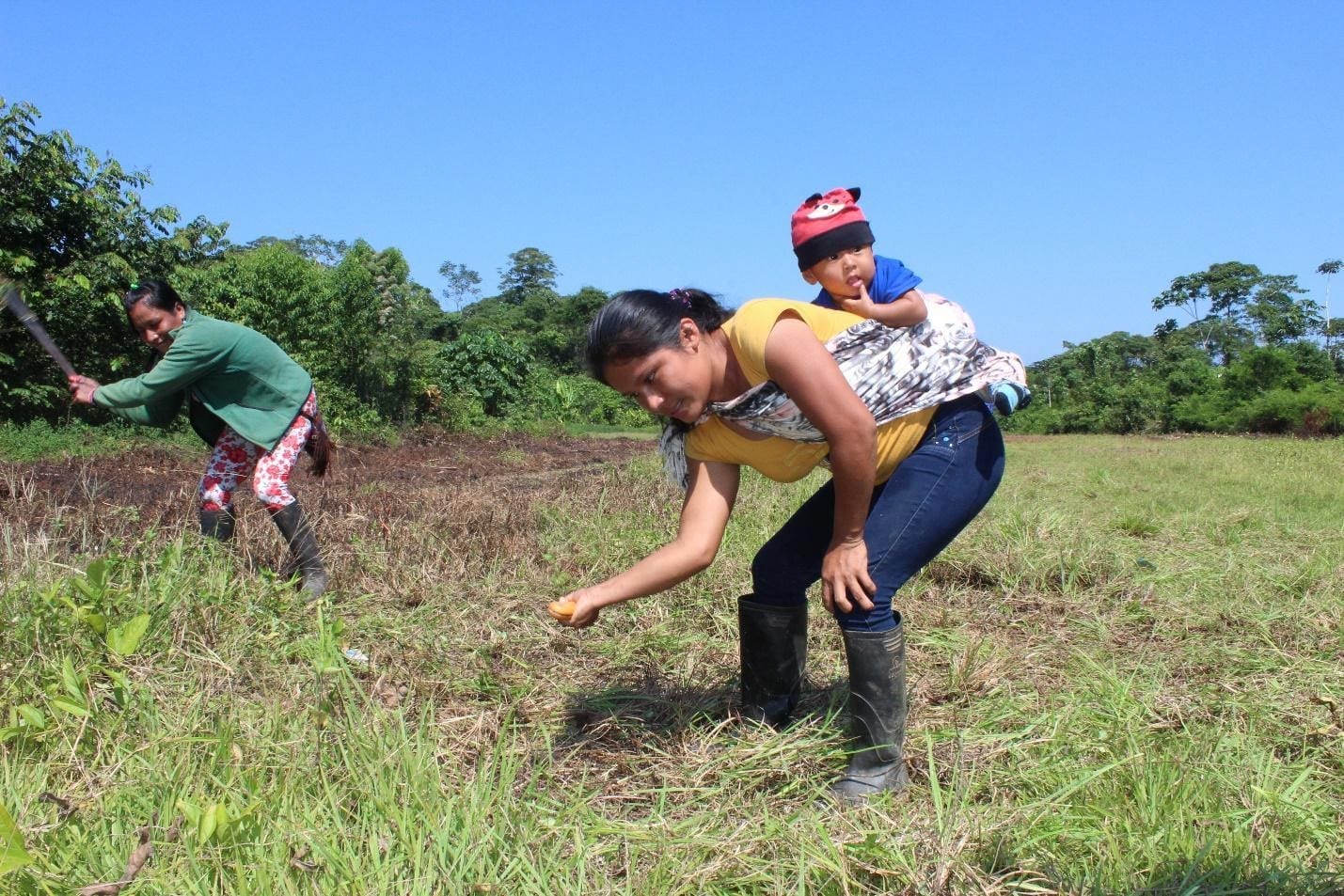
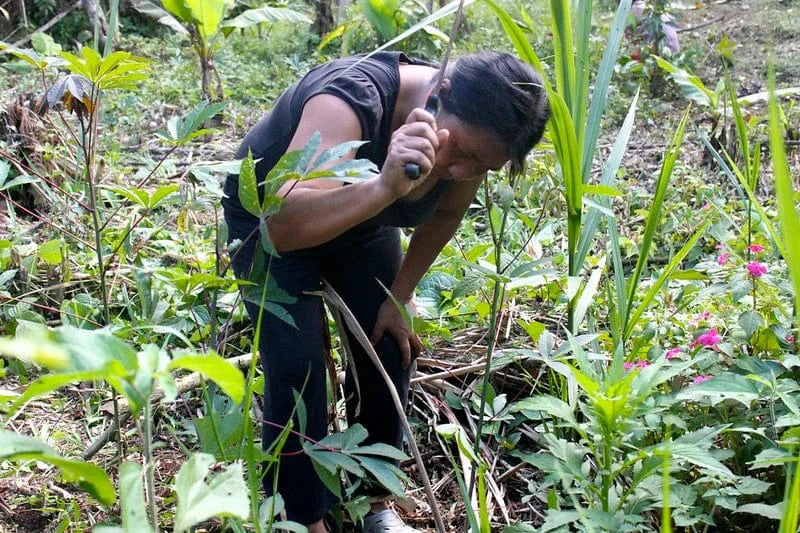
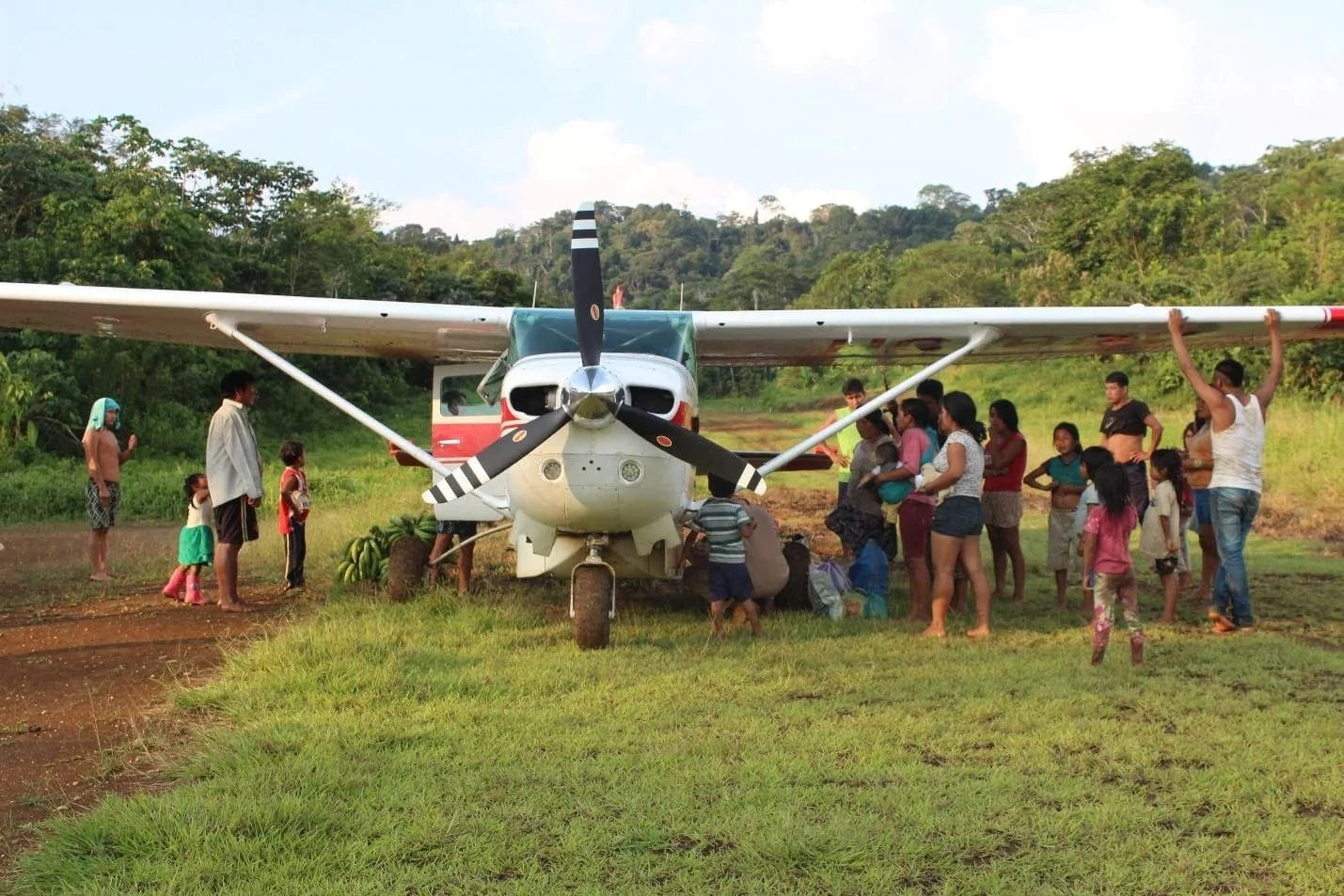
Restoring Forests, Restoring Indigenous Rights
This past year, One Tree Planted partnered with the Sapara Women’s Association, “Ashiñwaka” to plant 150,000 native and medicinal trees on Sapara lands covering 100 hectares in separate communities. Led by more than 120 staff and volunteers made up of indigenous women and their families, the tree planting is helping to restore native Amazonian rainforest while empowering Sapara women as leaders in their communities.
Planting these trees is helping give agency to the community — while providing income to the women of the Sapara Nation and subsequently increasing their autonomy within their communities. Additionally, tree planting is providing many ecological benefits. Restoring degraded forests will help prevent soil erosion and keep local rivers running clean. Tree planting will also help lower soil temperature and enrich soil fertility over time, facilitating healthy rainforest regeneration. Furthermore, restoration will create important habitat and food resources for the rich diversity of wildlife found in these forests.
Many of the tree species planted on this project are also important to the Sapara for spiritual purposes and for traditional medicine. In light of the Covid-19 situation worldwide, this is more important than ever in ensuring the community has access to local medicines, food and fibre otherwise difficult to access in this remote region.
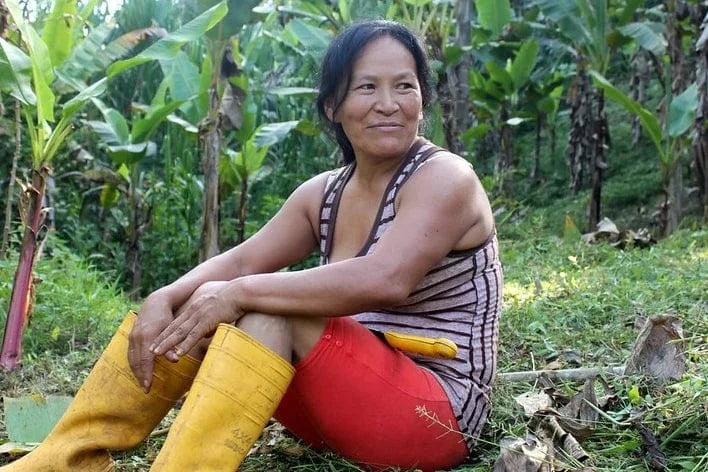
Where Tree Planting and Women's Empowerment Meet
Led by Sapara activist Gloria Hilda Ushigua Santi, the Sapara Women’s Association, or “Ashiñwaka” was created in 2009 to address the critical need to protect the fundamental human rights of Sapara women who have been threatened by violence and intimidation in defending their lands. Ushigua herself has been persecuted, beaten by police, threatened with death and had family members murdered in response to leading protests and resistance.
Despite these harrowing experiences, she and other Sapara women have not backed down. In 2015, she and other female indigenous leaders testified against the government’s environmental and indigenous crimes at the 156th session of the Inter-American Commission for Human Rights (IACHR), which was a huge step forward in bringing justice to their communities.
Finally, in 2019, Ecuador's Ministry of Energy and Non-Renewable Natural Resources granted a force majeure request by Andes Petroleum Ltd Ecuador due to the "resistance and social and political opposition" of indigenous peoples potentially affected by oil exploitation, effectively shutting the project down. Since these wins, the Sapara Women’s Association, “Ashiñwaka” has focused on defending the territorial and collective rights of the Sapara Nation while improving their lands.
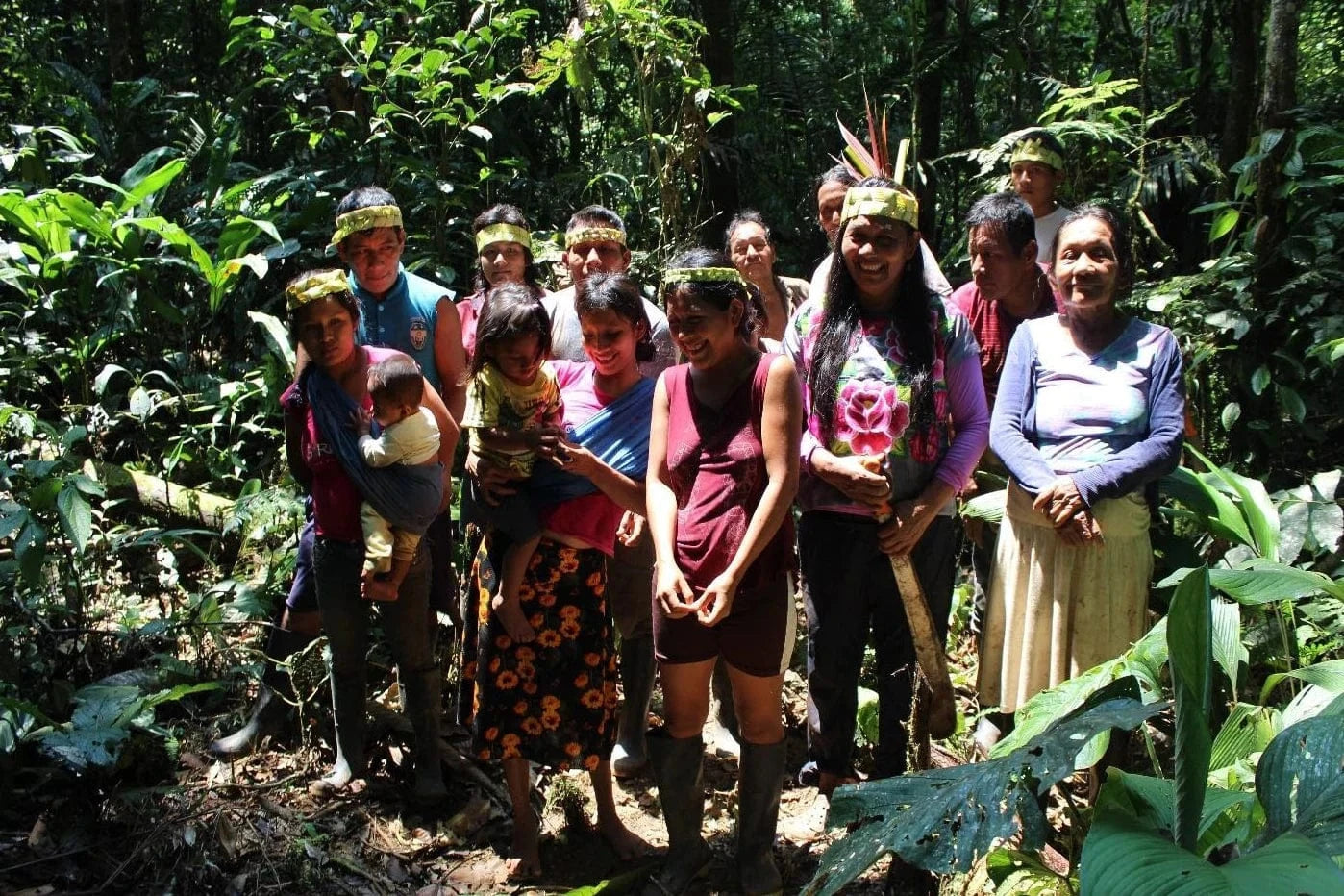
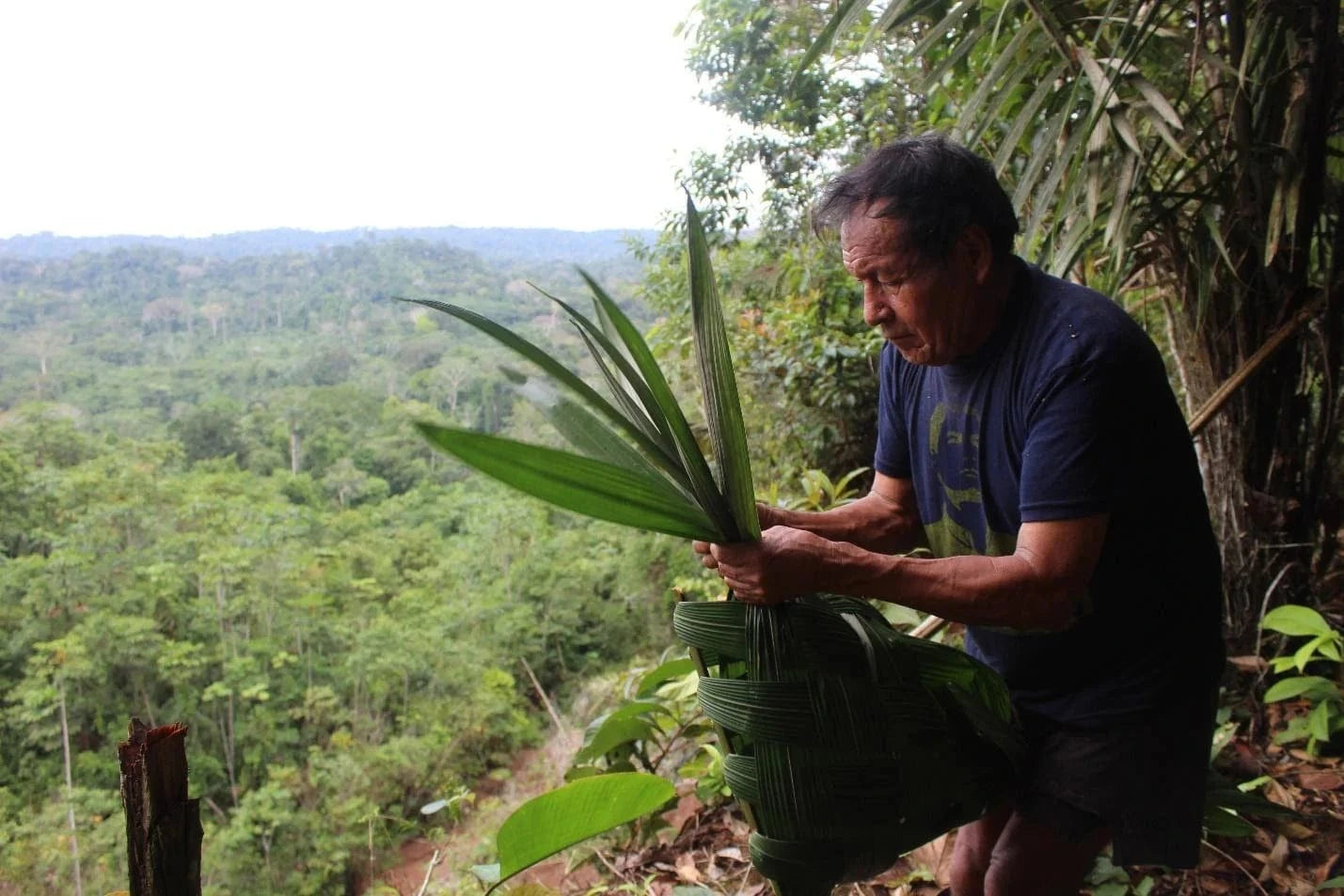
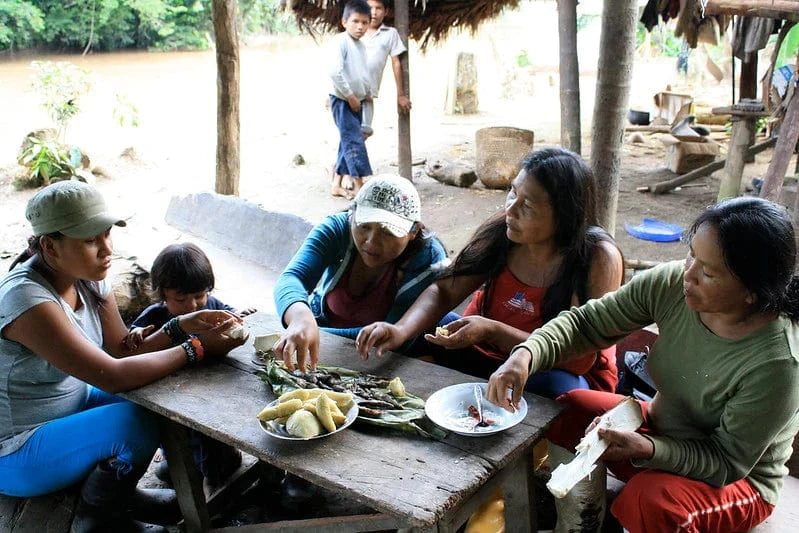
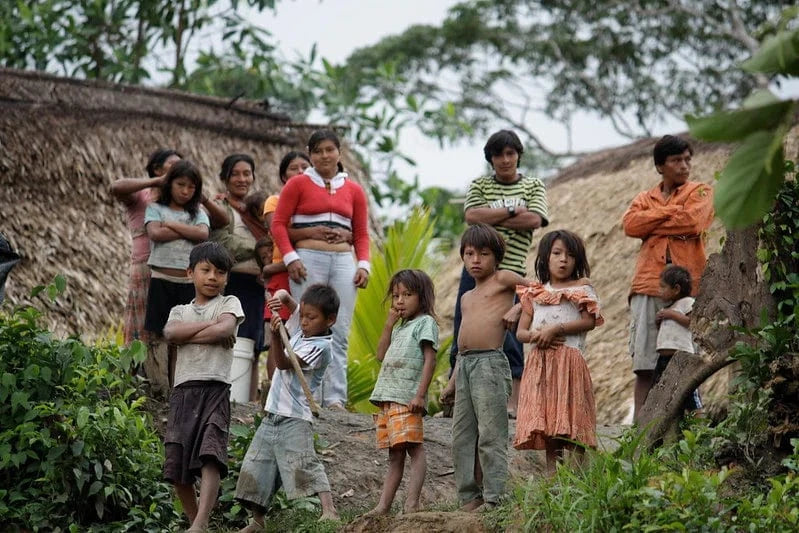
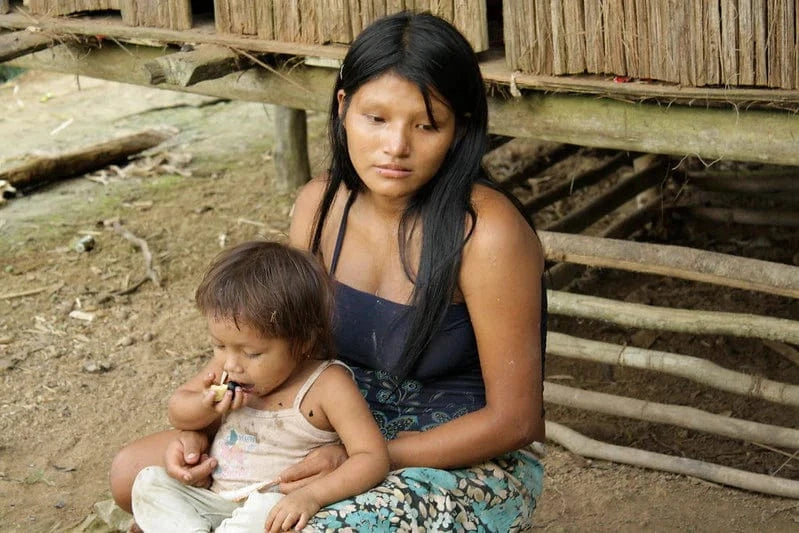
Forest Guardians
The Amazon rainforest is the largest remaining tract of rainforest left on Earth, absorbing massive amounts of carbon dioxide while releasing oxygen at an enormous scale. This natural process is an invaluable and free ecosystem service that benefits the entire world. So it is with a certain irony that destruction of the Amazon rainforests for the ancient fossil fuels underneath them would have the double impact of releasing more carbon dioxide into the atmosphere, while destroying the very “forest lungs” that mitigate against the most damaging effects of climate change.
By focusing on indigenous groups like the Sapara and empowering women as agents of change, this project maximizes its impact. Planting trees and restoring Amazonian forests helps ensure we reverse climate damage while protecting the Amazon’s irreplaceable biodiversity. All while championing courageous indigenous women as the rightful “forest guardians” of their lands.
We are incredibly impressed and grateful to work with outstanding people and partners like the Sapara Women’s Association, “Ashiñwaka”. This work is ongoing with lots more to do.Be a part of the movement for change: help us plant trees to restore tropical forests, champion indigenous rights and empower local women in Ecuador!
Get news, updates, & event Info delivered right to your inbox:
Related Posts
Why Trees Are Great Holiday Gifts
04/12/2025 by Meaghan Weeden
Real vs. Fake Christmas Trees: Which is Better For the Environment?
20/11/2025 by Meaghan Weeden
8 Reasons to be Grateful for Trees This Thanksgiving
18/11/2025 by Meaghan Weeden
Popular On One Tree Planted
What Causes Deforestation?
10/07/2025 by Meaghan Weeden
8 Amazing Bamboo Facts
14/01/2025 by Meaghan Weeden
Inspirational Quotes About Trees
09/01/2025 by Meaghan Weeden
Fundraising Disclosures

Be Part of the
Restoration Movement
The Grove is more than just a monthly giving program: it's a vibrant community of individuals who are dedicated to reforestation and environmental restoration on a global scale.
As a member of The Grove, you affirm your commitment to restoring forests, nurturing biodiversity, and fostering positive global change.





